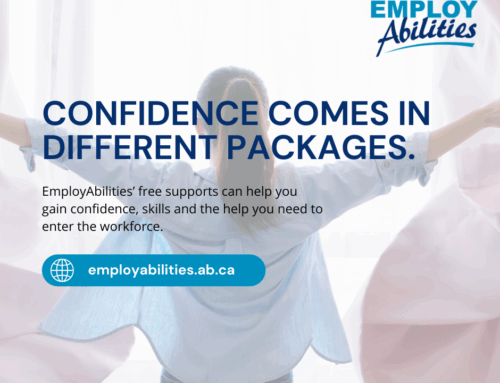
Everyone, including people with barriers to employment, should have the opportunity to participate in the workplace. However, in some cases, adjustments are required to make that possible. That is why employers have the Duty to Accommodate.
Workplace accommodations can help you meet the needs of all your employees. However, there are myths about accommodations. Here are three.
MYTH: Accommodations are expensive
Workplace accommodations are often free or low-cost. For example, an employee might require a flexible work schedule or give the chance to work from home occasionally. In other cases, they might need minor modifications to their workstation, like a specific chair or keyboard.
In rare cases requiring specialized equipment, you can research funding from the municipal, provincial, and federal government to offset the cost.
MYTH: You must treat all employees the same
There is a difference between treating people differently and treating people unfairly. Everyone has the right to fair treatment and employment opportunities. However, for some, to achieve employment, different treatment is required to prevent discrimination and remove barriers.
For example, if you require a written portion for your job application, someone with a visual impairment may need to submit it in braille or an audio file.
MYTH: Accommodations negatively impact workplace culture
Some employers believe the misconception that giving an employee with disabilities accommodation is showing favouritism. You might be worried that other employees will feel this way if the person has an invisible disability. For example, they might feel jealous of their colleague’s work schedule or that they sometimes work remotely.
You must not disclose personal information about any of your employees, but there are ways you can stay clear of perceptions of favouritism. For example, having open discussions in the workplace about inclusion and providing training on accessibility can help reduce misunderstandings. In addition, your employees should understand that accommodations help everyone and benefit the entire team.
If you have questions about accommodations, please get in touch with us. You can also read more about an employer’s Duty to Accommodate from the Alberta Human Rights Commission.





